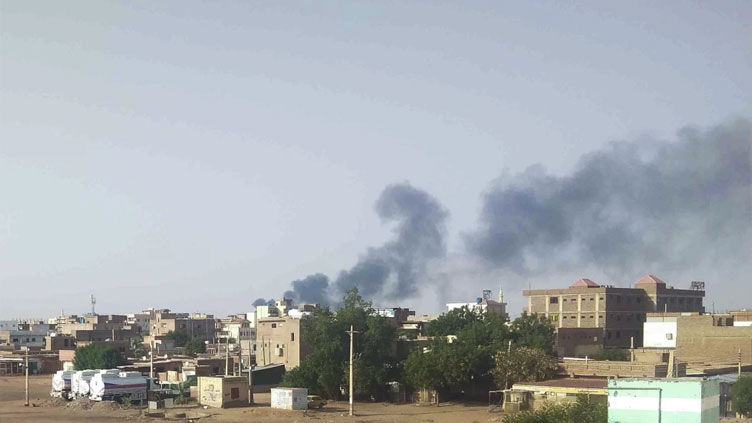Sudan violence likely to push over 1 million refugees out of the African country by October, UN says

World
Sudan violence likely to push over 1 million refugees out of the African country by October, UN says
CAIRO (AP) — The United Nations said Tuesday the surging violence in Sudan is likely to drive more than 1 million refugees out of the African country by October, as the 10-week conflict shows few signs of easing.
Sudan descended into chaos after fighting erupted in mid-April between the military, led by Gen. Abdel-Fattah Burhan, and the paramilitary Rapid Support Forces, commanded by Gen. Mohammed Hamdan Dagalo. Since then, over 3,000 people have been killed, the country’s Health Ministry said, while about 2.5 million people have been displaced, according to the U.N.
The violence has been most acute in the capital, Khartoum, but also in the western Darfur region, where RSF and Arab militias are reportedly targeting non-Arab tribes, local rights groups and the U.N. said. Most of those who have escaped have fled east to Chad.
“We were talking about 100,000 people in six months (fleeing to) Chad. And now the colleagues in Chad have revised their figures to 245,000,” said Raouf Mazou, assistant secretary-general at United Nations High Commission for Refugees, at a news conference in the Swiss city of Geneva.
Burhan and Dagalo separately declared a truce to mark the beginning of the Muslim festival of Eid al-Adha this week. Dagalo, in a voice recording posted on his social media page late Monday, said the truce would last Tuesday and Wednesday; while Burhan, in a televised speech broadcast Tuesday evening, said a “unilateral cease-fire” would take place on Wednesday.
There have been at least nine cease-fires since the conflict erupted in April and all have foundered.
During the same TV speech, Burhan called on Sudan’s youth and others capable of fighting to support the Sudanese army, either from “their place of residence or by joining the military movement.” It remains unclear if the call-up is mandatory.
In May, the country’s Defense Ministry made a similar appeal, calling on retired soldiers and army reservists to report to the nearest military command to fight against the RSF.
The province of West Darfur has seen some of the worst violence. In a report last week issued by the Dar Masalit sultanate, the leader of the African Masalit ethnic community accused the RSF and Arab militias of “committing genocide against African civilians.” He estimated that more than 5,000 people were killed in the province’s capital, Genena, over the past two months.
So far over 560,000 Sudanese have escaped to neighboring countries, with Egypt being the primary destination. “We expect, unfortunately, looking at the trends, that the conflict will continue and that many in Sudan will opt to (go to) Egypt,” Mazou said.
Peace negations mediated by the U.S. and Saudi Arabia in the Saudi coastal town of Jeddah have all but broken down. The talks were formally adjourned last week with both mediators publicly criticizing the RSF and the army for continually violating truces the two nations had brokered.
Throughout the conflict, residential areas and hospitals in Khartoum have been pounded by army airstrikes, while RSF troops — who have the upper hand on the city’s streets — have commandeered civilian homes across the capital and turned them into bases.
Sexual violence, including the rape of women and girls, has been reported in Khartoum and Darfur. Almost all reported cases of sexual attacks were blamed on the RSF, which hasn’t responded to repeated requests for comment.
Late on Monday, the RSF said it would establish an internal body to assess and punish paramilitary troops accused of “violations and misconduct.” However, on that same day, Dagalo said many of the purported crimes have in fact been committed by affiliates of former Islamist leader Omar al-Bashir and other militias who had disguised themselves in RSF uniforms.
Former president al-Bashir, who led Sudan for 30 years, was toppled in a popular uprising in 2019. From the start of the conflict, Dagalo has accused the army of harboring Islamists and other affiliates of the ousted president within its ranks.
Over the past few days, new clashes also erupted between the Sudanese army and the country’s largest rebel force, the Sudan Popular Liberation Movement–North, in the remote Blue Nile state.
The outburst of fighting has pushed hundreds of civilians into neighboring Ethiopia, the U.N.'s mission in Sudan said. It remains unclear how many people have been killed in the clashes.
The southeastern pocket of the country was the scene of intense tribal clashes that killed over 170 people in October last year.

